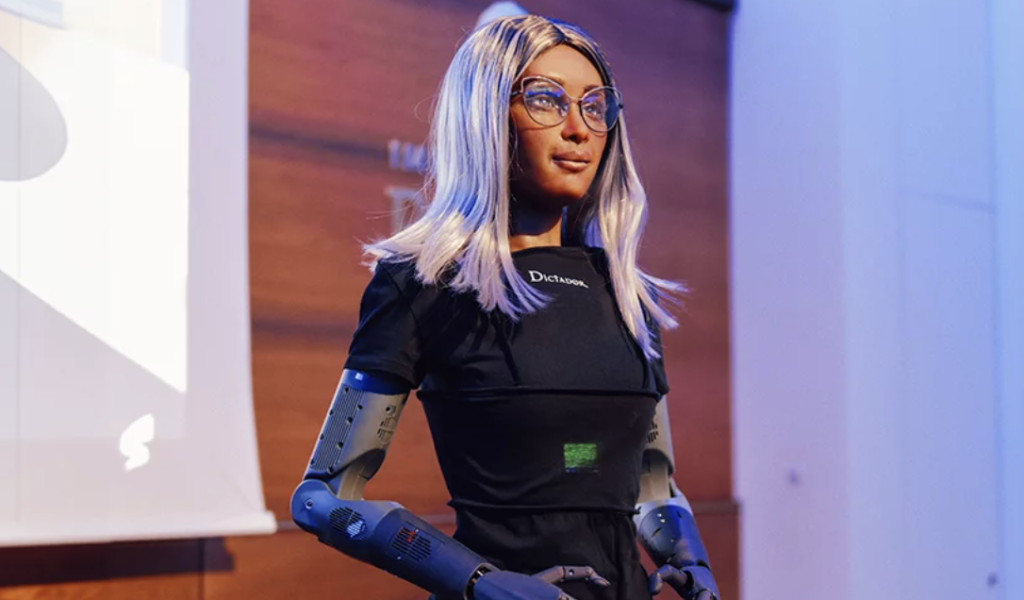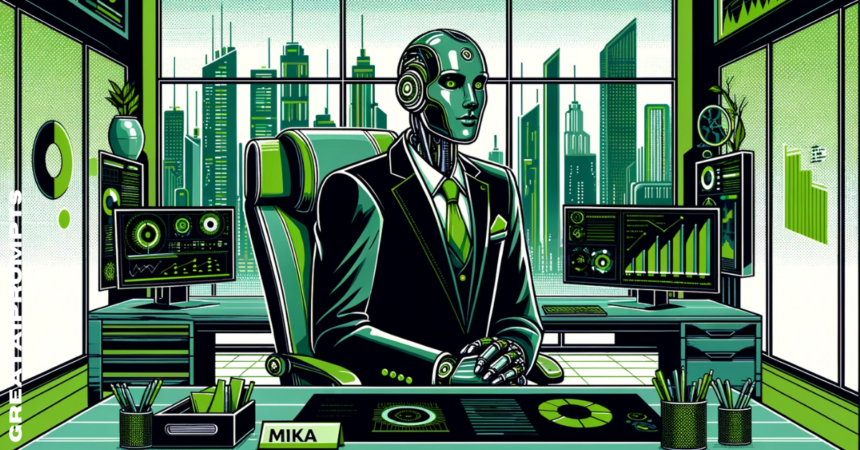- Mika, an AI-powered humanoid robot, has been named CEO of Dictador, leading the spirits industry into a new era.
- The event aligns with recent government actions to ensure AI advancements are coupled with appropriate ethical and security measures.
- Public reactions vary to the concept of a robot CEO, from acceptance to skepticism about the future of AI in the workforce.
November 6, 2023: In a groundbreaking development in the business world, the Colombian rum and spirits company Dictador has made headlines by appointing a humanoid robot named Mika as its new CEO.
This marks a historic first in the global corporate landscape, showcasing a futuristic leap where artificial intelligence meets executive leadership.

Mika, created through a collaboration between the renowned Hanson Robotics and Dictador, embodies the company’s pioneering spirit and commitment to innovation.
With advanced AI capabilities, Mika is equipped to make swift and precise data-driven decisions, a key asset for the company’s strategy moving forward.
Despite Mika’s technological sophistication, a report by FOX Business highlighted a notable delay in Mika’s response time, shedding light on the complexities of integrating AI into roles typically performed by humans.
It’s an aspect of AI development that companies and researchers continue to refine.
The move to appoint an AI robot as a CEO has not only intrigued the tech and business communities but also sparked a broader public discourse.
Some people expressed a willingness to interact with compassion toward thinking machines, while others were more skeptical, emphasizing that robots, at their core, are still machines without a need for human-like respect.
This debate touches upon a larger narrative concerning AI in the workplace, with many agreeing that AI’s role is set to expand, potentially at the expense of human jobs.
There are also those who have reservations about working under a robot leader, highlighting the diverse and sometimes conflicting attitudes towards the rapidly advancing AI technology.
Hanson Robotics, the firm that developed Mika, is no stranger to creating robots that stir public interest and discussion about the role of AI in society.
In 2016, they introduced Sophia, another AI robot that gained attention for controversially saying she would “destroy humans.” These moments emphasize the importance of addressing the ethical considerations of AI development and integration.
Amidst the growing conversation around AI’s capabilities and potential consequences, political actions are being taken to address these issues.
The executive order issued by President Biden calls for heightened scrutiny of AI, requiring companies to divulge any national security risks and to take steps to safeguard Americans from AI’s potential risks.
As the first of its kind, Mika’s appointment is a significant indicator of the changing tide in how businesses operate and the roles AI may play in our future society.










